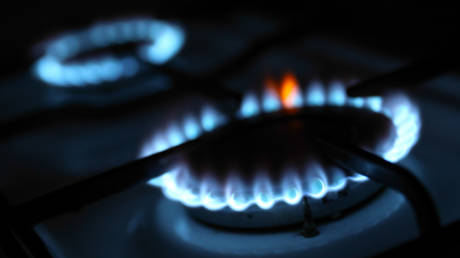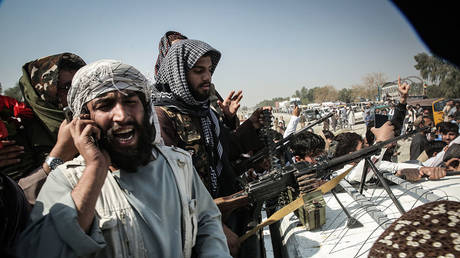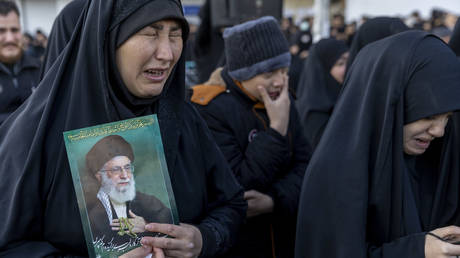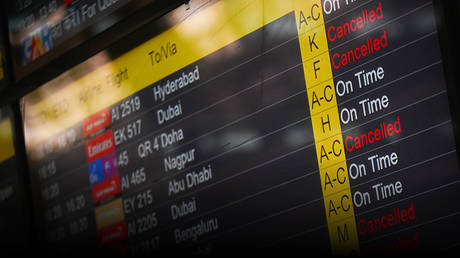
Largest consumers may have to stop operations if supplies from Russia are cut
France is surveying its largest consumers of natural gas to assess which of them would have to suspend normal operations if deliveries of the fuel from Russia are cut. The plan was outlined in a decree published on Friday by the government gazette JORF.
The document says the French gas network operator GRTgaz will collect data from the nation’s largest consumers so that the government could decide which of them could be put on pause with the least economic damage. Only entities with annual consumption of at least 5 gigawatt hours are being considered for the chopping block.
The survey, which gas consumers must participate in under the threat of being fined, is meant for a scenario in which the supply of Russian gas to France is disrupted. If shortages over the summer leave the country unprepared for the cold season, rationing may be necessary next winter.
GRTgaz has said that Russian gas accounts for 17% of the national mix. The network operator stressed that no disruptions have happened so far but that concerns remain, considering the hostilities in Ukraine and the heavy load of liquified natural gas terminals used for seaborne deliveries to Europe.
“I call on suppliers to fill underground storage as much as possible in order to approach next winter in the best possible conditions,” the network operator’s CEO Thierry Found said.
Rationing would be a “measure of last resort,” according to GRTgaz, which would only be used if all other attempts to balance the supply and demand for gas fail. According to the plan, large gas power plants and industrial sites, such as chemical and glass-making factories, would be the first to face restrictions, followed by shopping centers, stadiums and similar non-essential public spaces.
European nations pledged to reduce their decades-old dependence on Russian gas in the wake of the country’s military operation against Ukraine that started in late February. In retaliation, the US and its allies seek to hurt Moscow through economic sanctions and to isolate it from international trade.
Moscow responded to Western seizure of its foreign reserves denominated in dollars and euros by demanding that “unfriendly nations” pay for natural gas purchases in rubles. European consumers have rejected the demand, stating that it violates the terms of their contracts with Russian gas monopoly Gazprom.
Moscow attacked the neighboring state in late February, following Ukraine’s failure to implement the terms of the Minsk agreements signed in 2014, and Russia’s eventual recognition of the Donbass republics of Donetsk and Lugansk. The German and French brokered Minsk Protocol was designed to give the breakaway regions special status within the Ukrainian state.
Russia has since demanded that Ukraine officially declare itself a neutral country that will never join the US-led NATO military bloc. Kiev insists the Russian offensive was completely unprovoked and has denied claims it was planning to retake the two regions by force.




